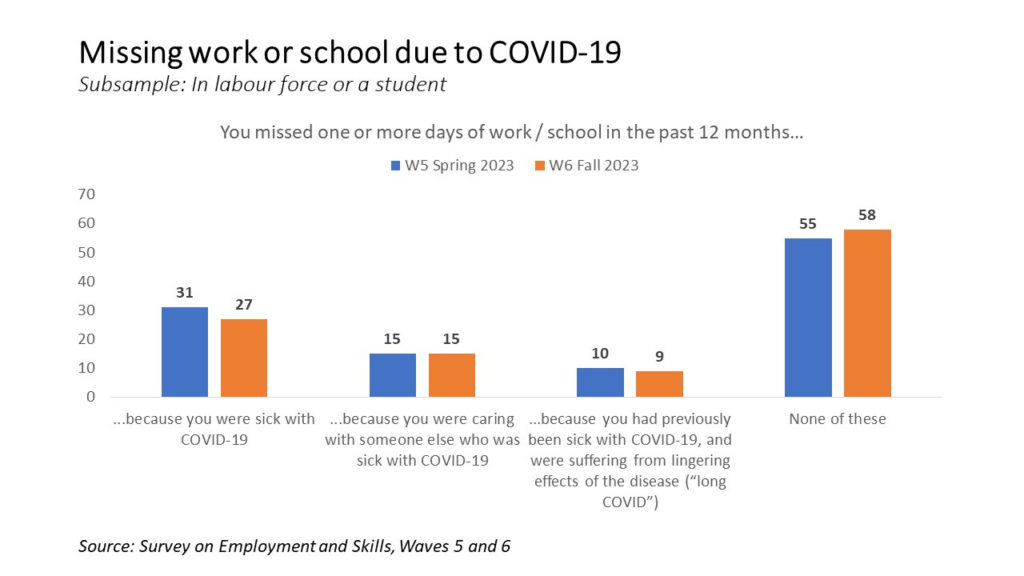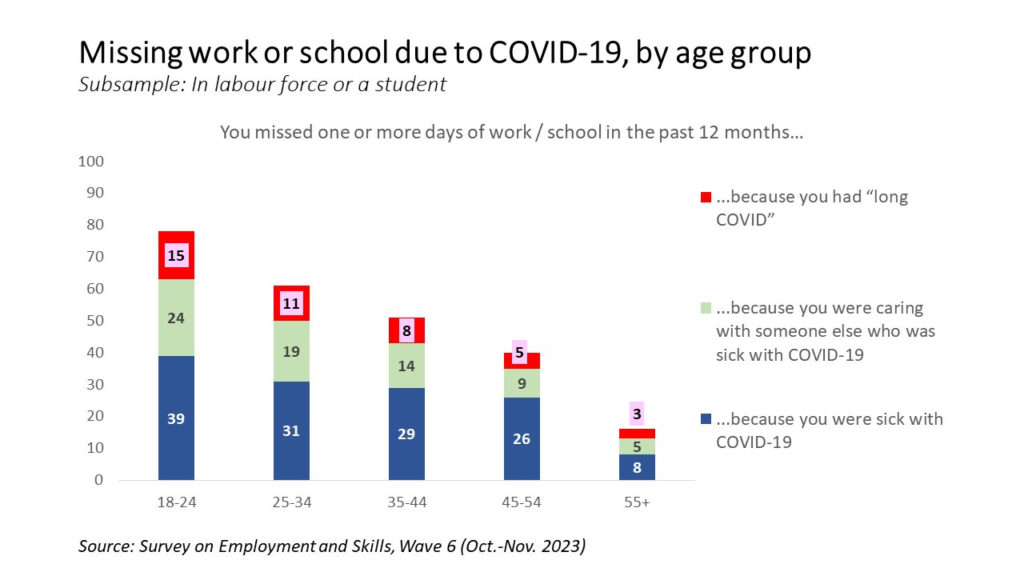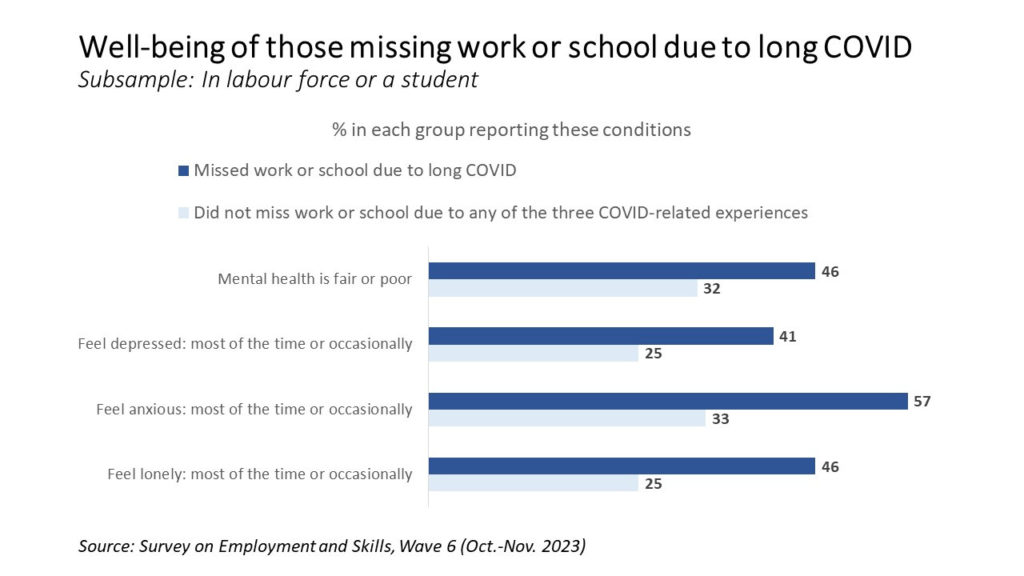Young adults disproportionately affected by COVID-19

One in ten Canadian adults is missing work or school due to long COVID.
Happy New Year! I hope you found time for some rest and relaxation over the holiday. I hope you were able to spend some time with family and friends. I hope you didn’t get sick.
But many people are still getting sick, with COVID-19, specifically. The latest data from the Survey on Employment and Skills — a project jointly led by the Environics Institute, the Diversity Institute at Toronto Metropolitan University and the Future Skills Centre — finds that, in the 12 months leading up to November 2023, among adults in the labour force or in education:
- 27 percent missed one or more days of work or school because they were sick with COVID-19;
- 15 percent missed one or more days of work or school because they were caring for someone else who was sick with COVID-19; and
- 9 percent missed one or more days of work or school because they had previously been sick with COVID-19 and were suffering from lingering effects of the disease, such as fatigue (i.e., long COVID).
Combining the three experiences, about two in five (42%) adult Canadians in the labour force or in education had missed at least one day of work or school in the 12 months up to November 2023 because they or someone they were caring for were sick with COVID-19.
We first asked this question in an earlier survey in the spring of 2023. At the time, we thought it might be the only time we would need to ask it; as we moved into last summer, case numbers were declining. But, as we now know, that was just another dip in the COVID-19 roller-coaster ride. The figures from the fall of 2023 are only slightly lower than those from earlier in the year.

As we reported recently in more detail, one of the most striking findings is the extent to which these experiences are more common among younger adults. A majority of adults under the age of 35 who are in the labour force or in education are missing work or school for any of the three reasons mentioned in the survey, whereas the same is true of only a small proportion of those age 55 or over. This is no doubt having a negative effect on younger Canadians’ education, earnings and career advancement.

Also important are the effects of these experiences on mental health and well-being, particularly in the case of those who are dealing with long COVID. Those who say that they’ve missed work or school because they’d previously been sick with COVID-19 and were suffering from lingering effects of the disease are more likely than others to report poor mental health and to have more frequent feelings of depression, anxiety and loneliness. These negative experiences are even more common among younger adults with long COVID.

It would have been nice to start 2024 with COVID-19 in the rearview mirror. But it’s important to confront the impact that the virus continues to have, not only on our short-term health, but also on our well-being over the longer term, particularly for youth, and for the roughly one in ten adult Canadians grappling with long COVID.

Read all the detailed findings on this topic in our full report on the Lingering Effects of COVID-19.
This article has been reproduced with permission from writer Andrew Parkin and the Environics Institute for Survey and Research. It originally appeared on Mr. Parkin’s Substack.
The views, thoughts and opinions expressed here are the author’s own and do not necessarily reflect the viewpoint, official policy or position of the Future Skills Centre or any of its staff members or consortium partners.




